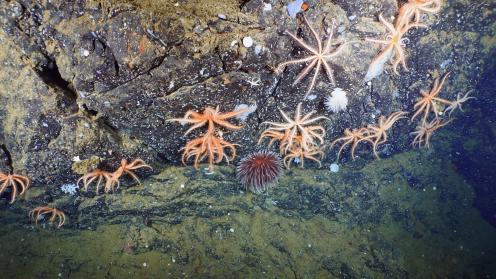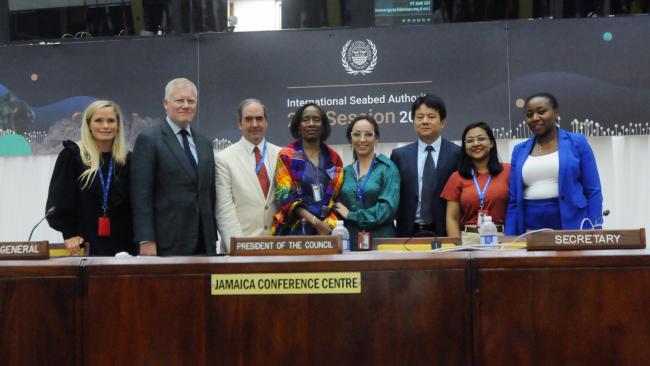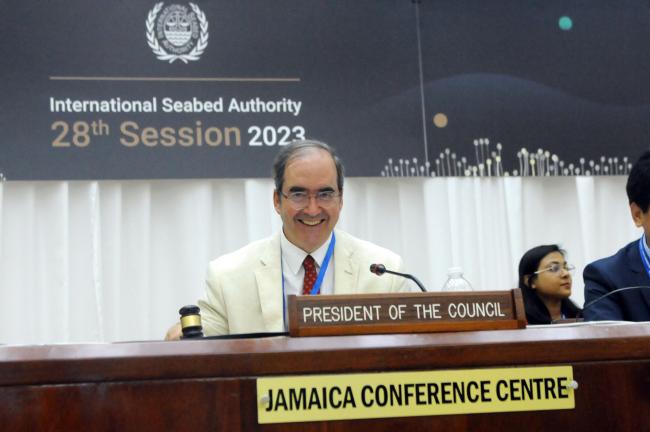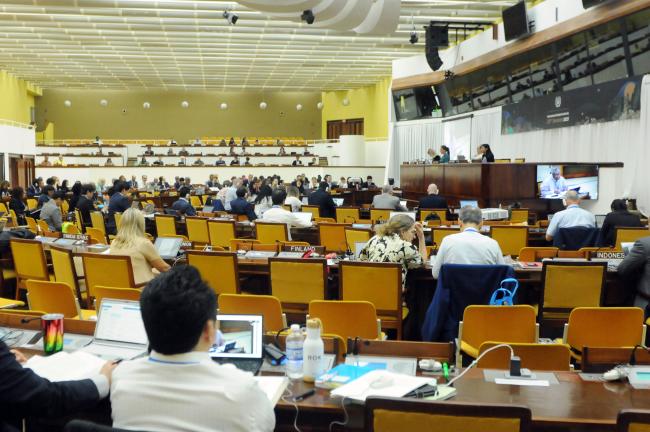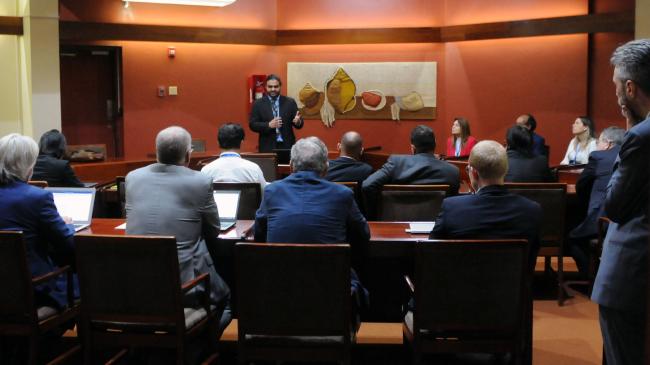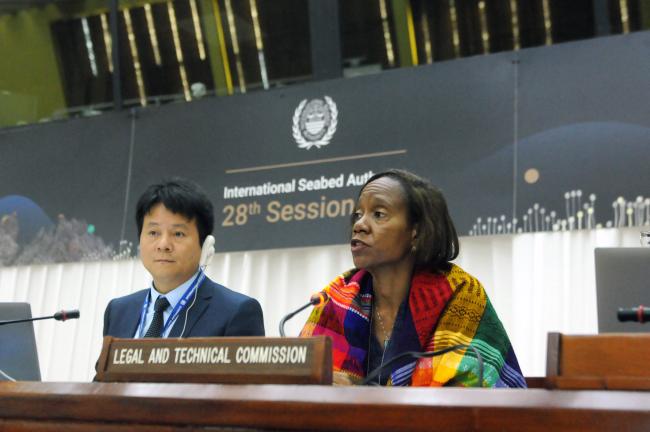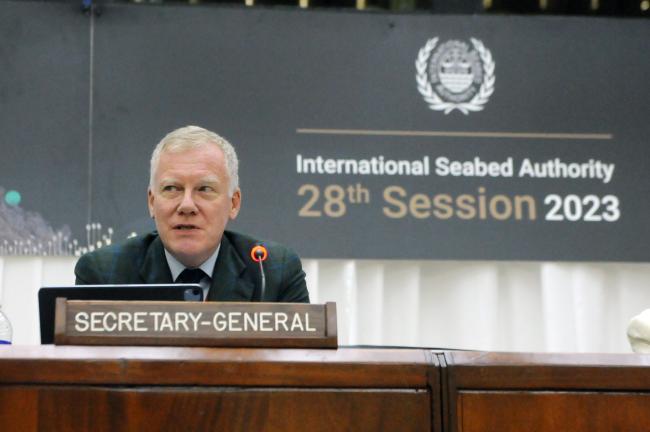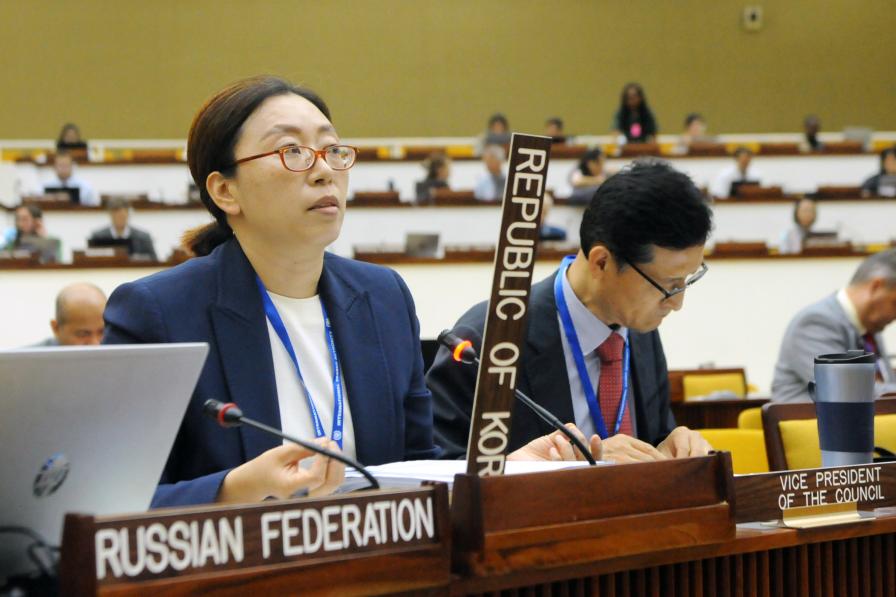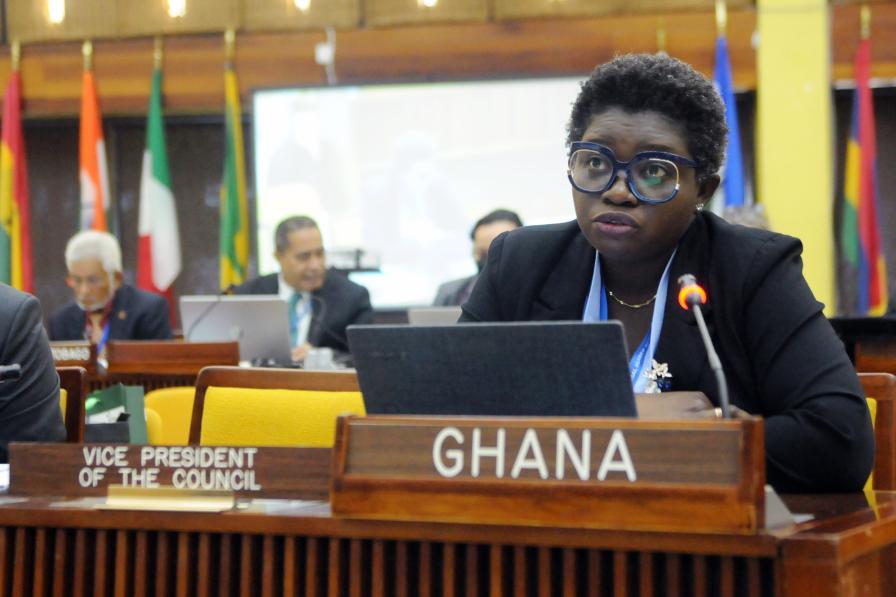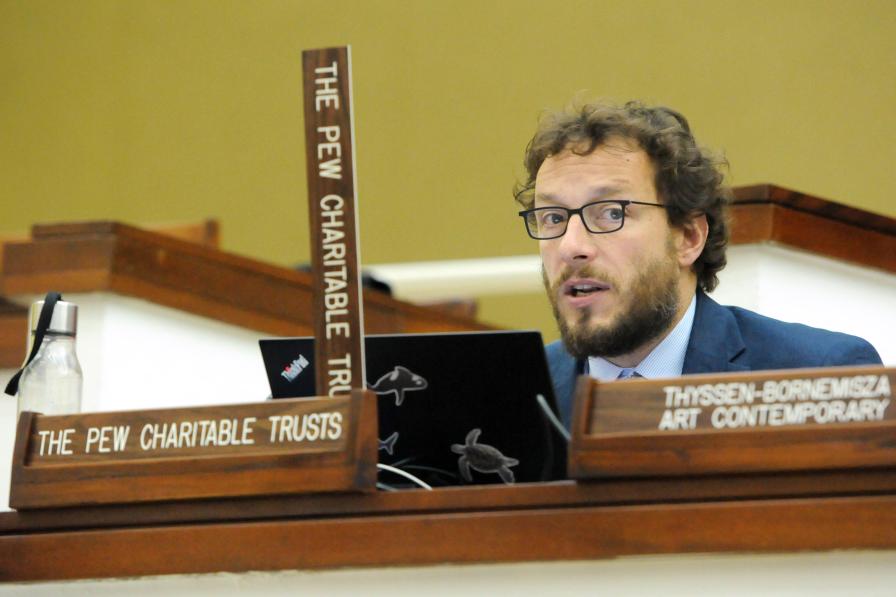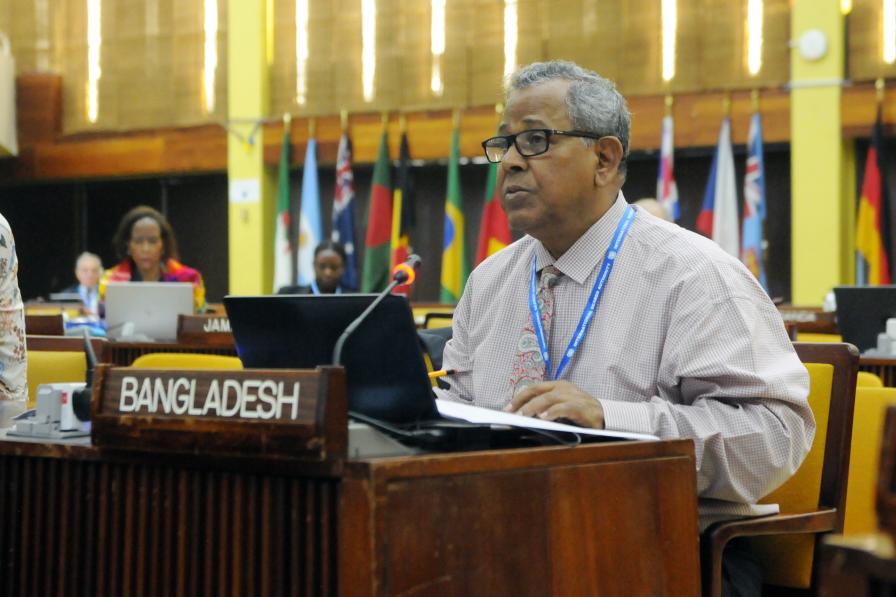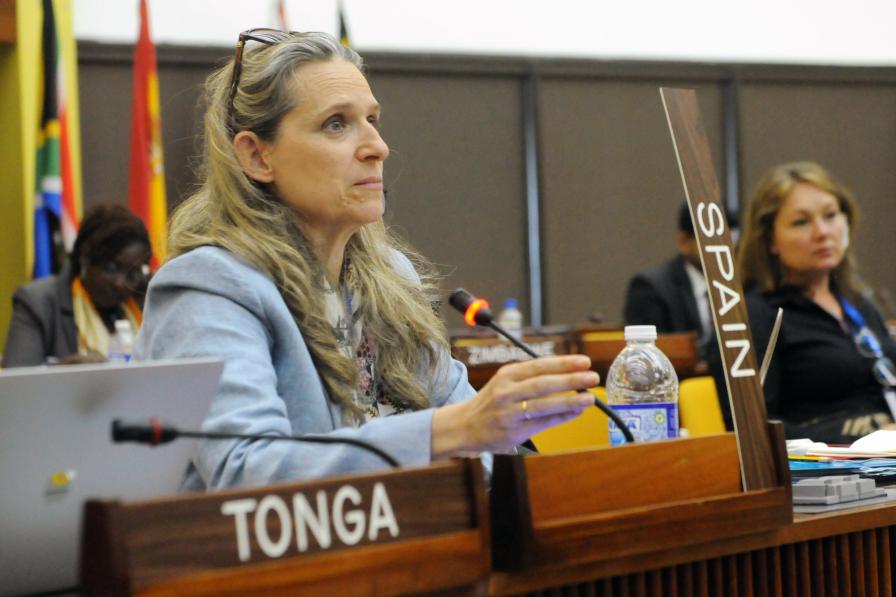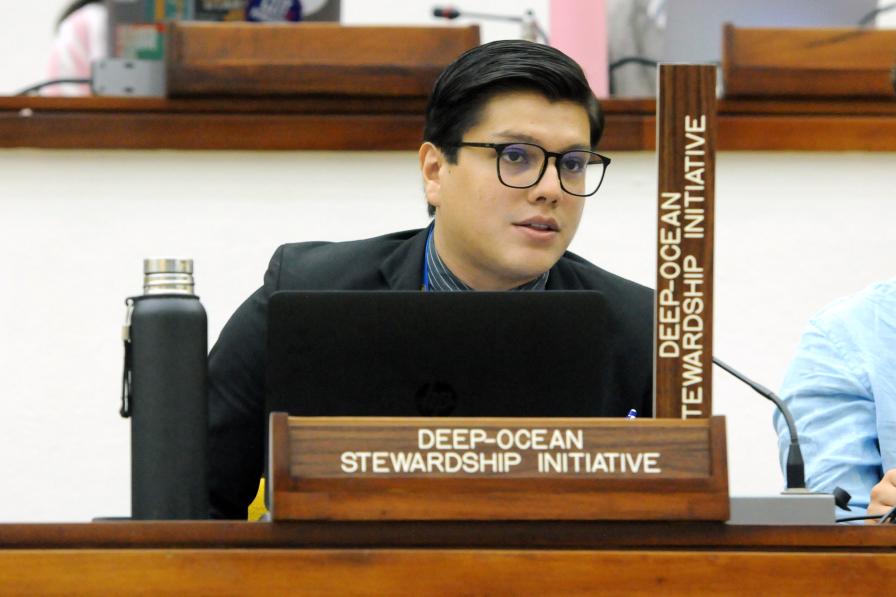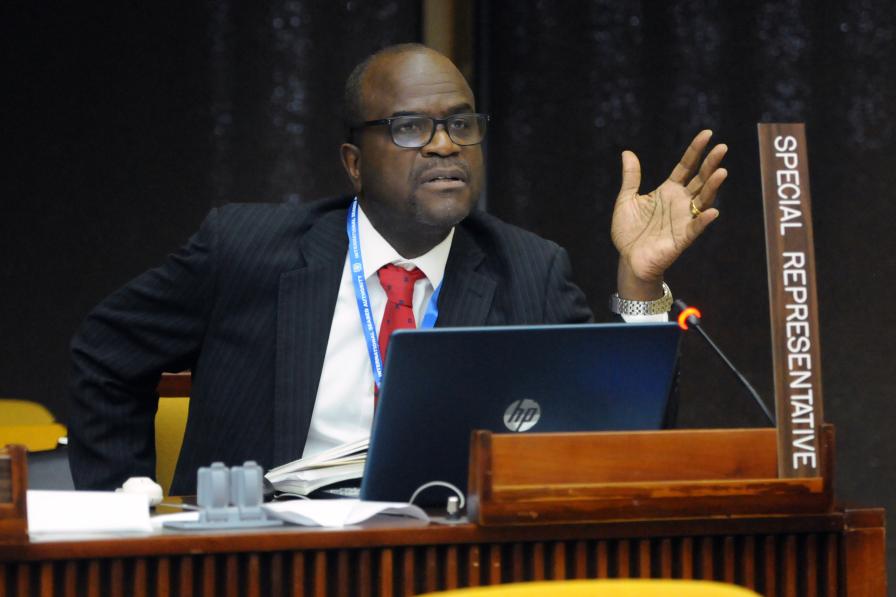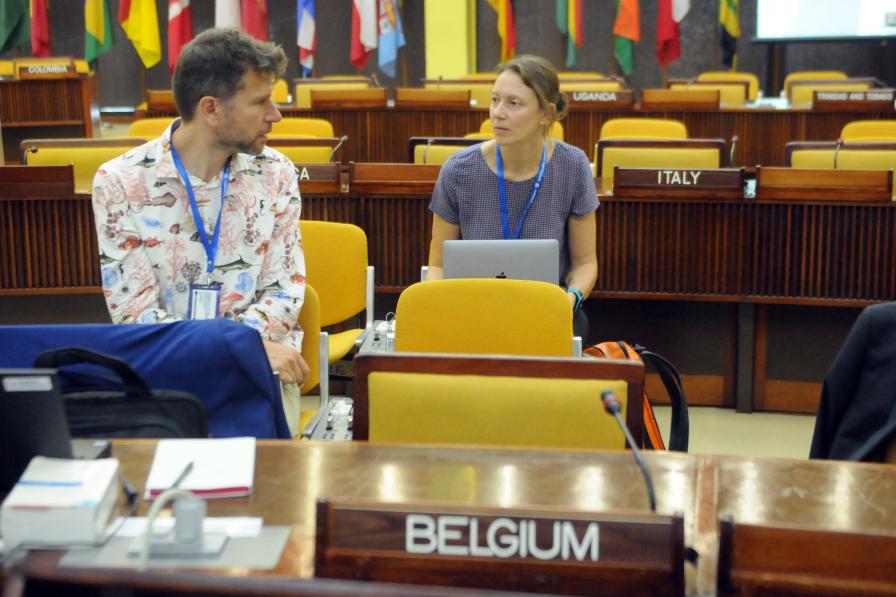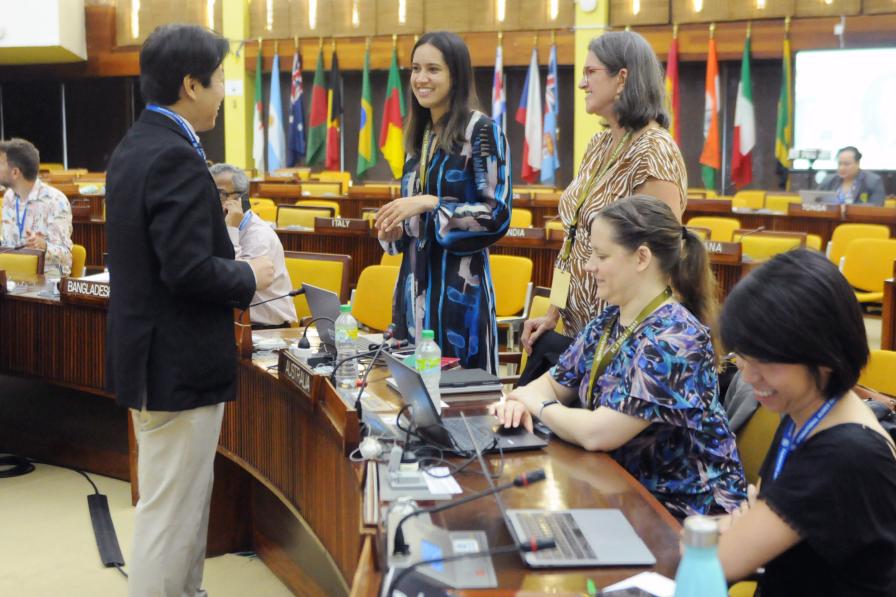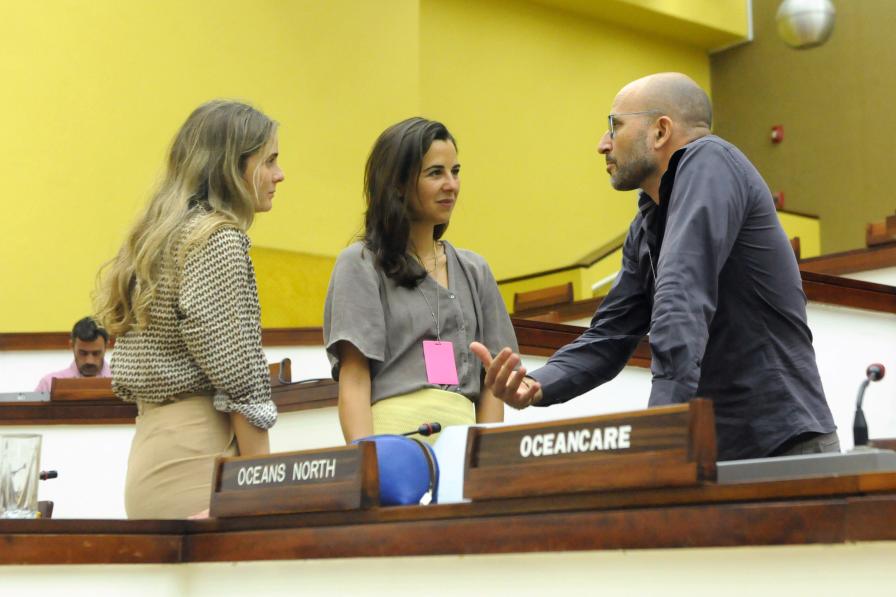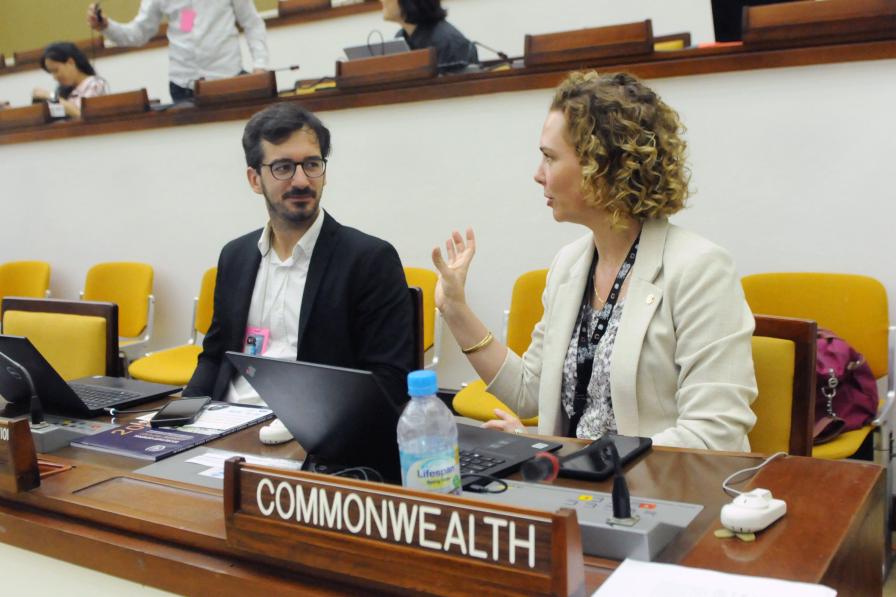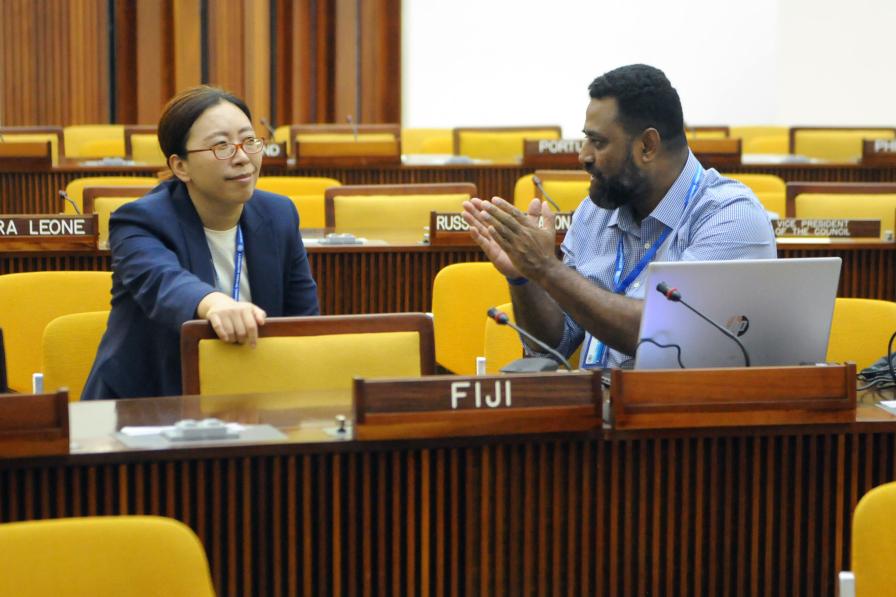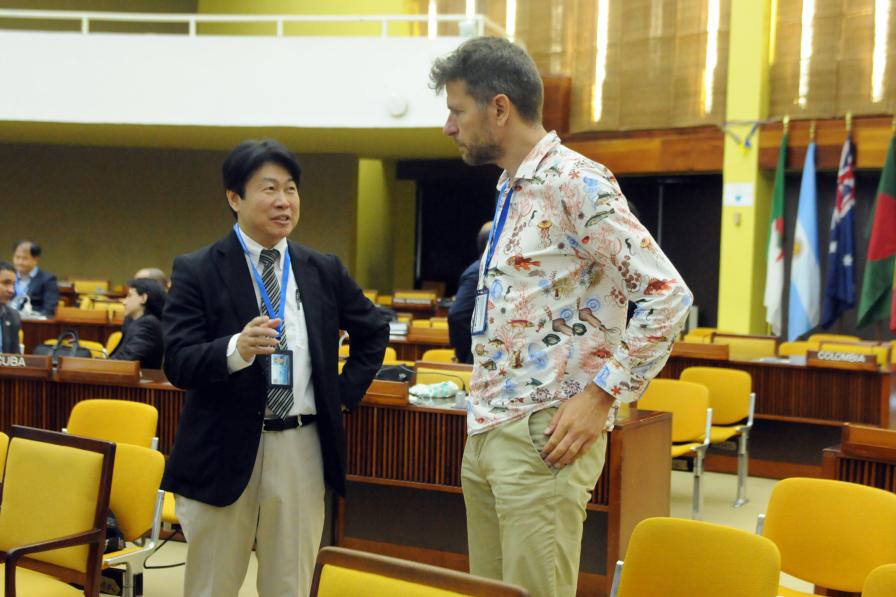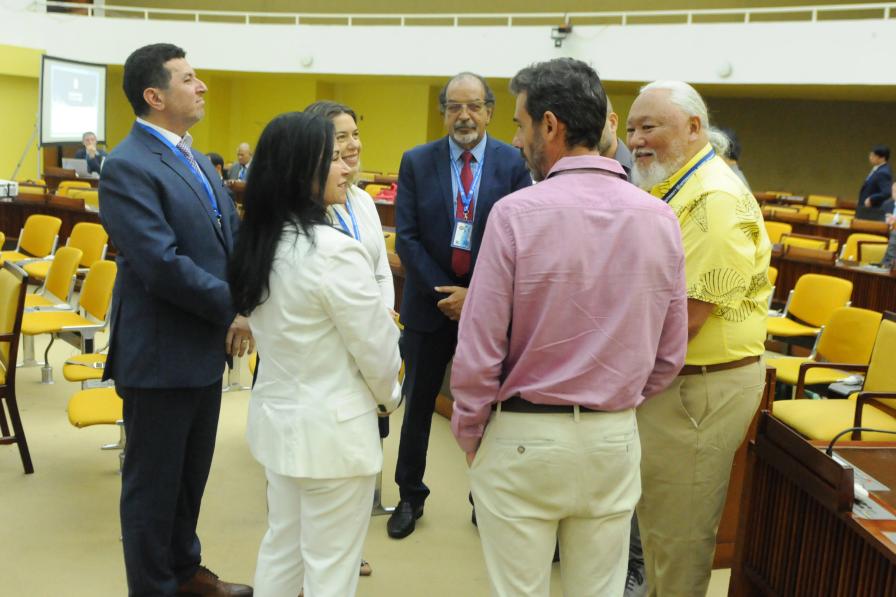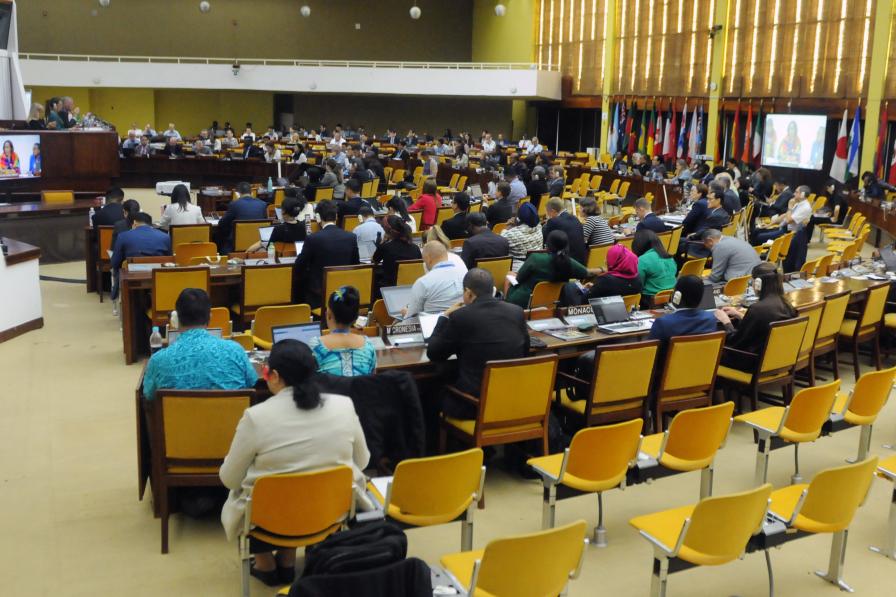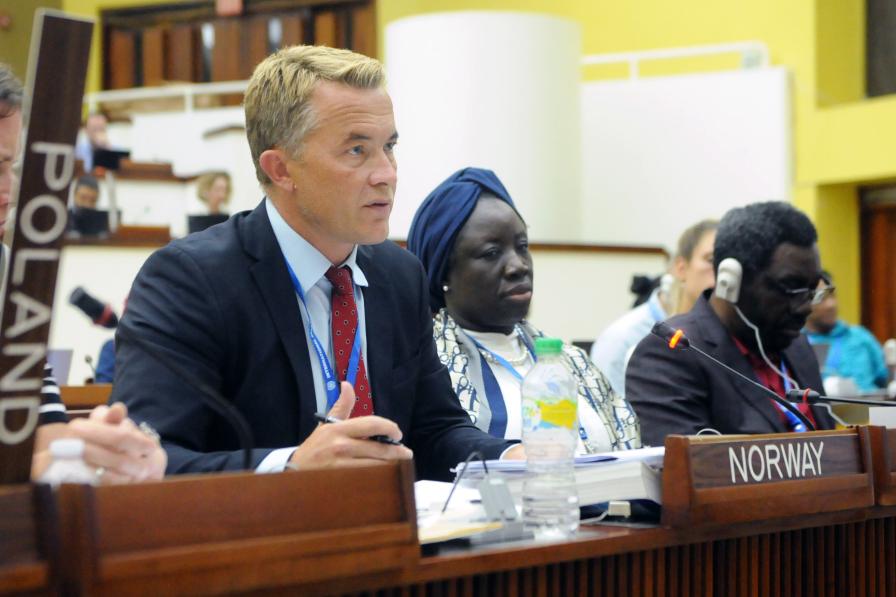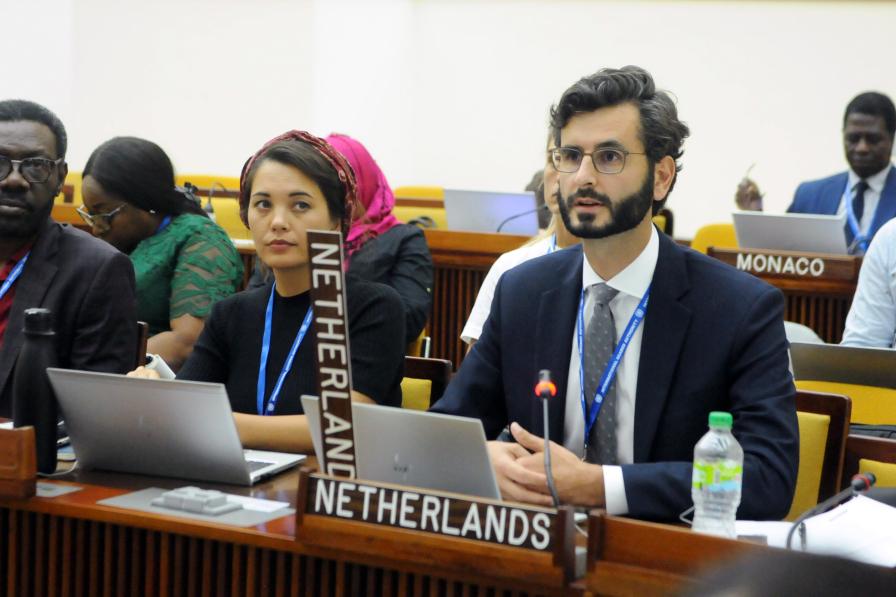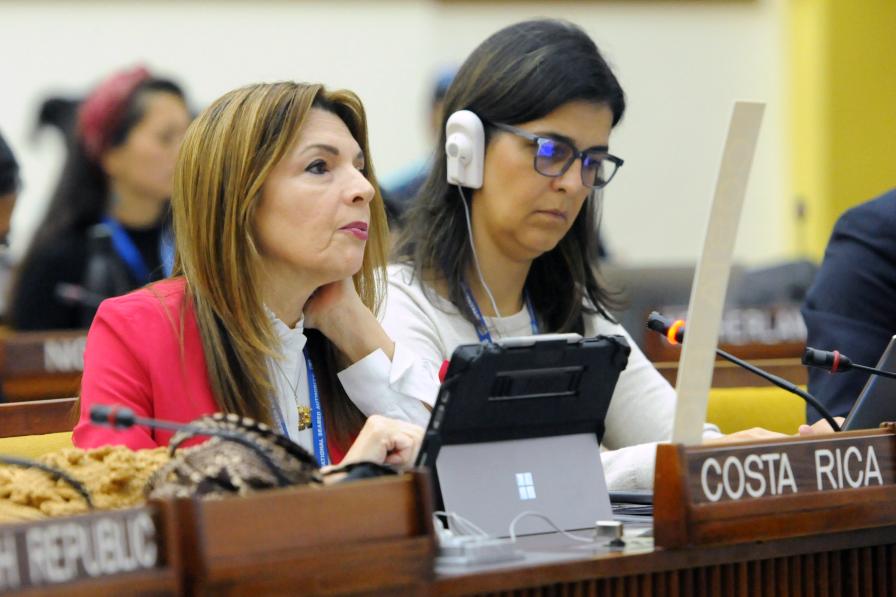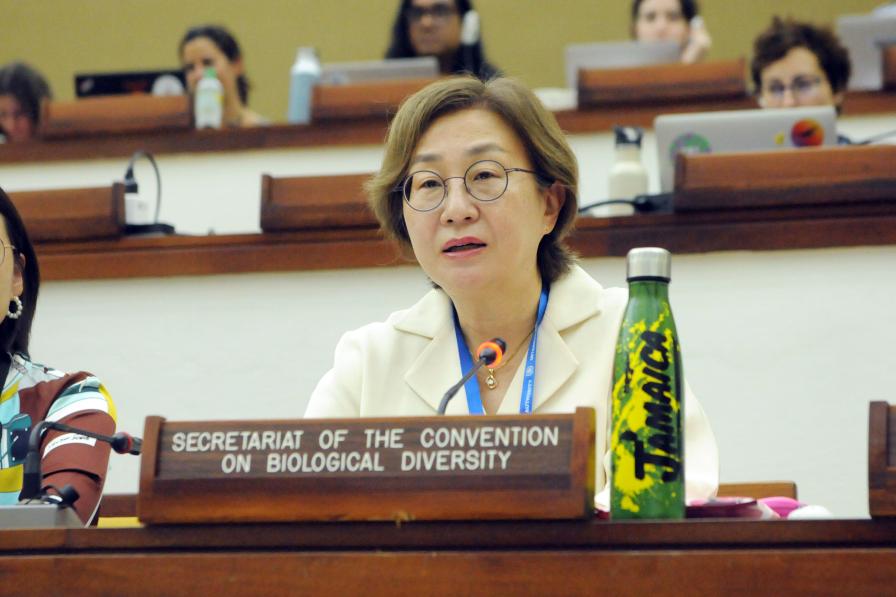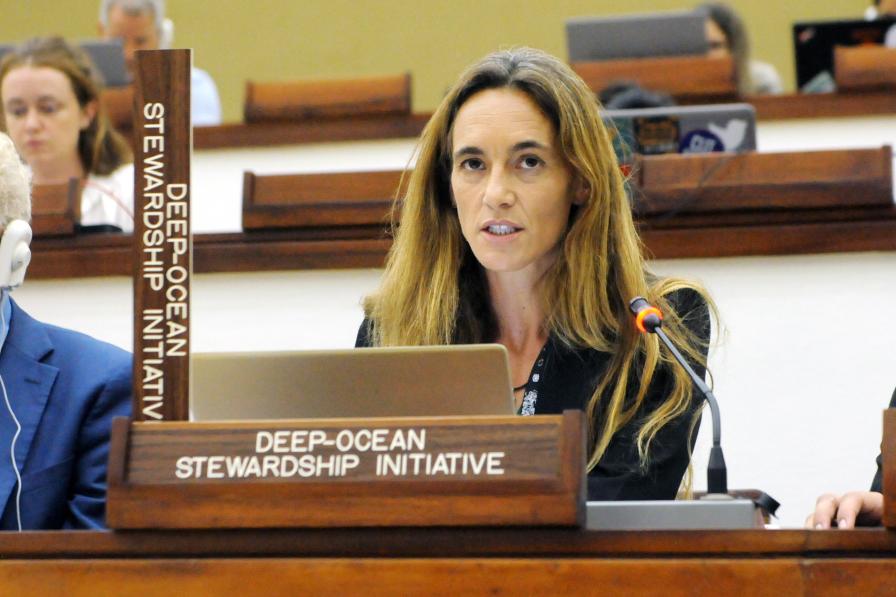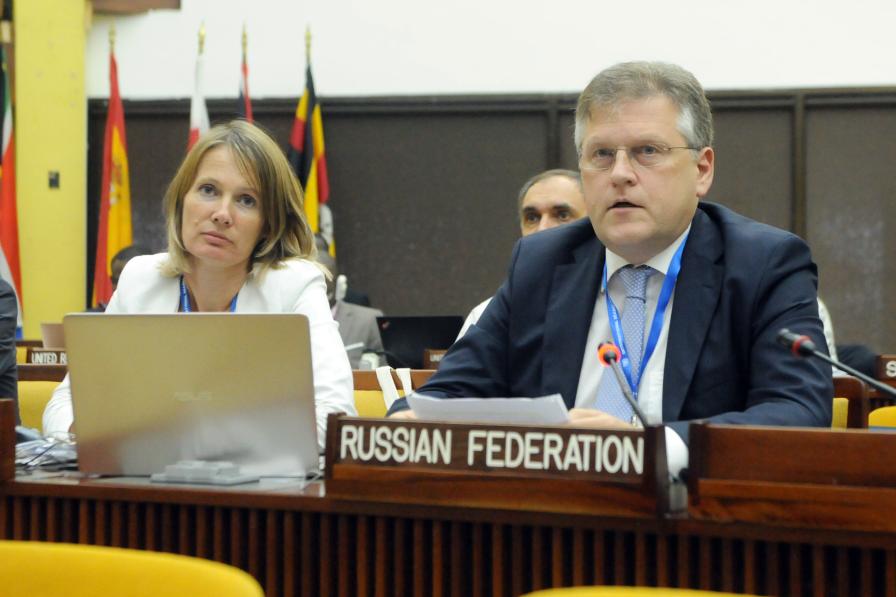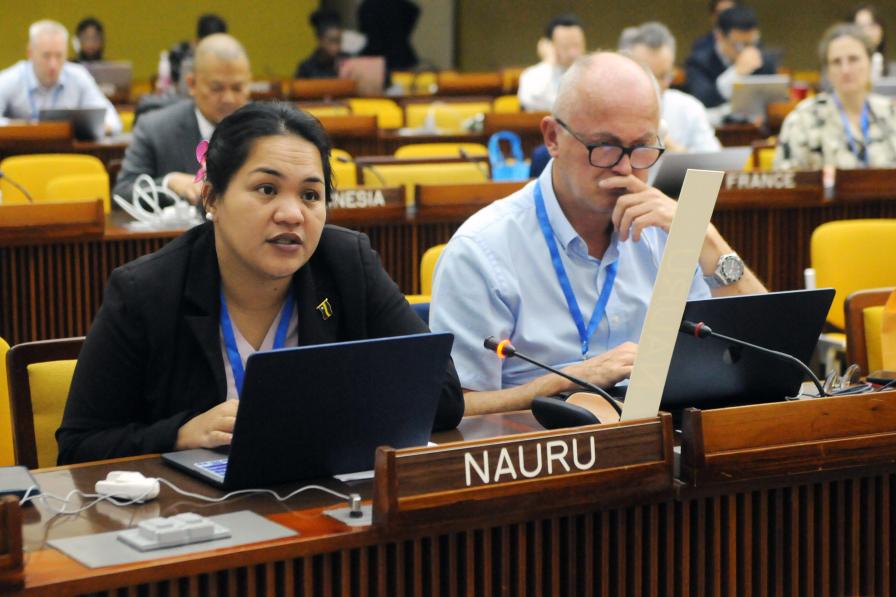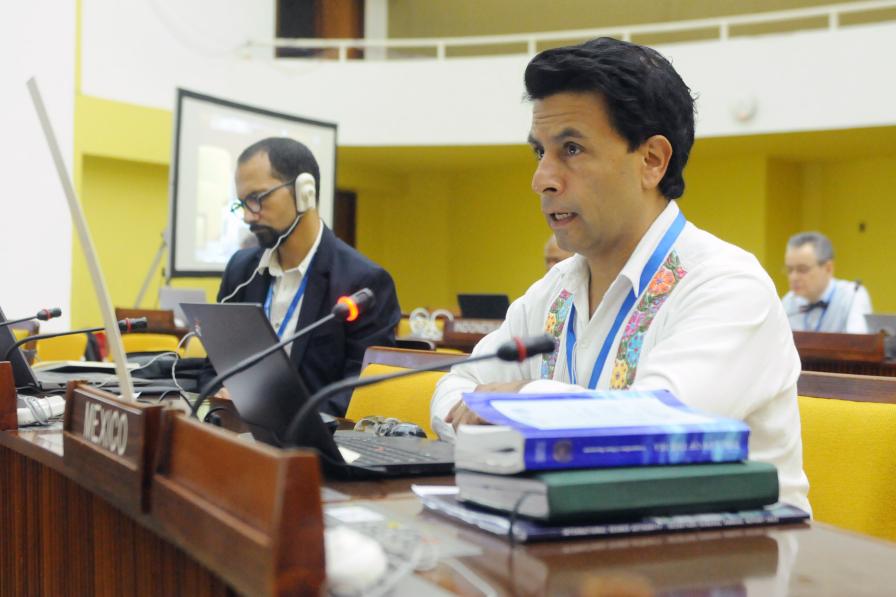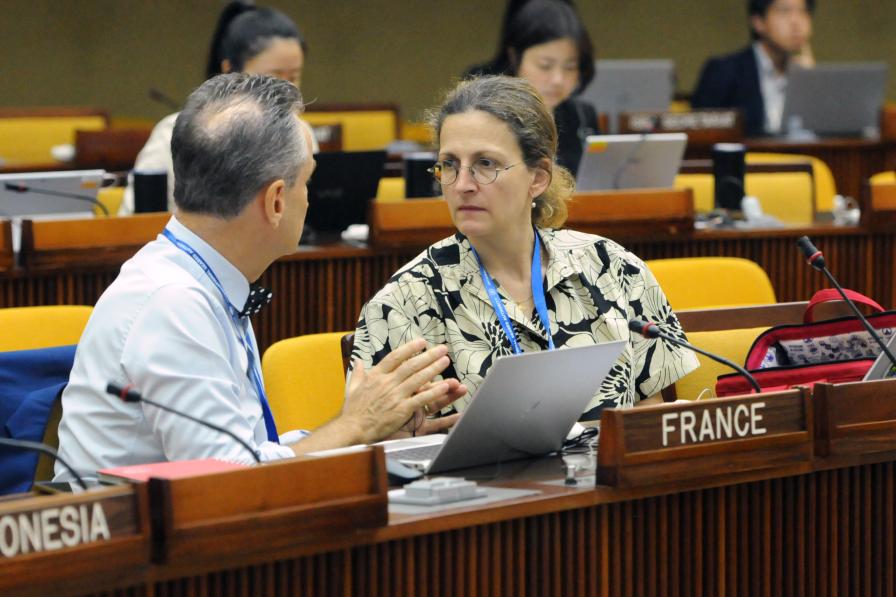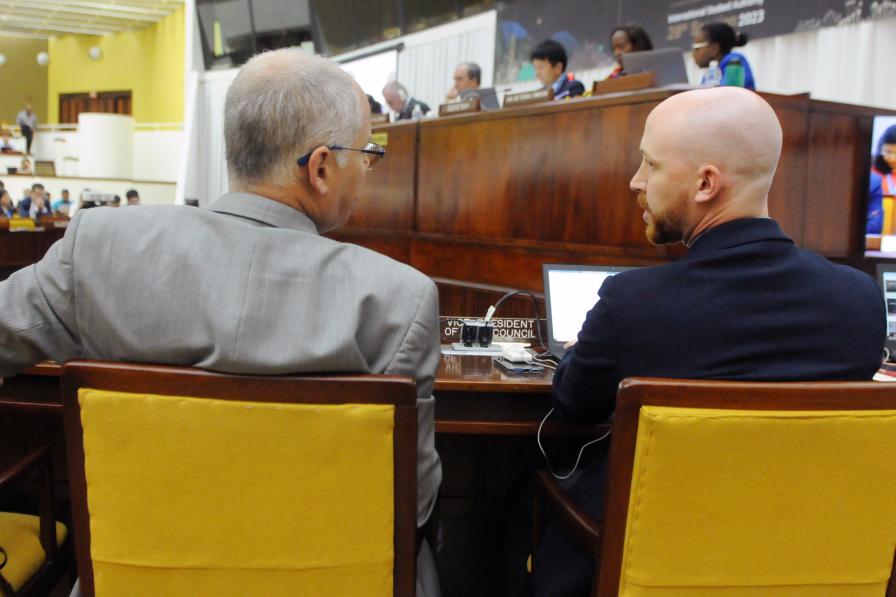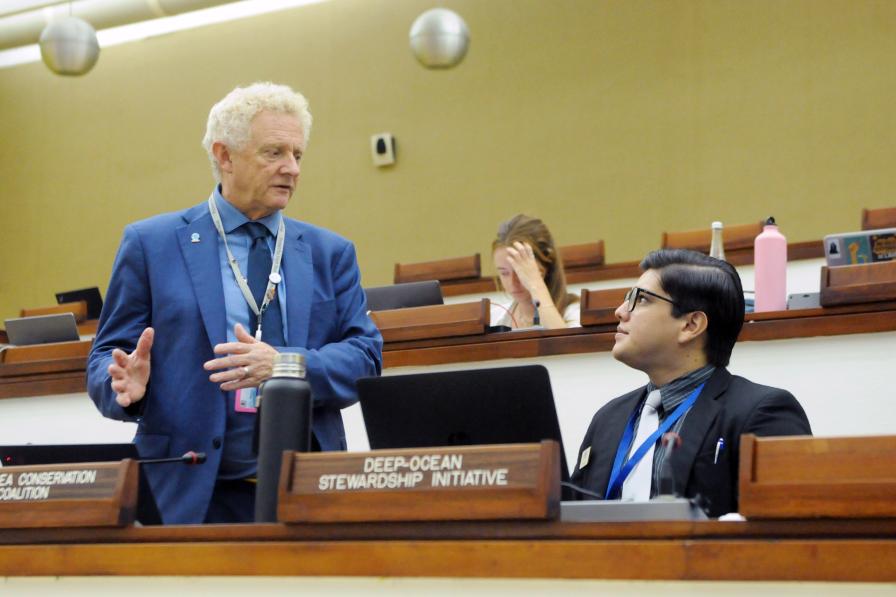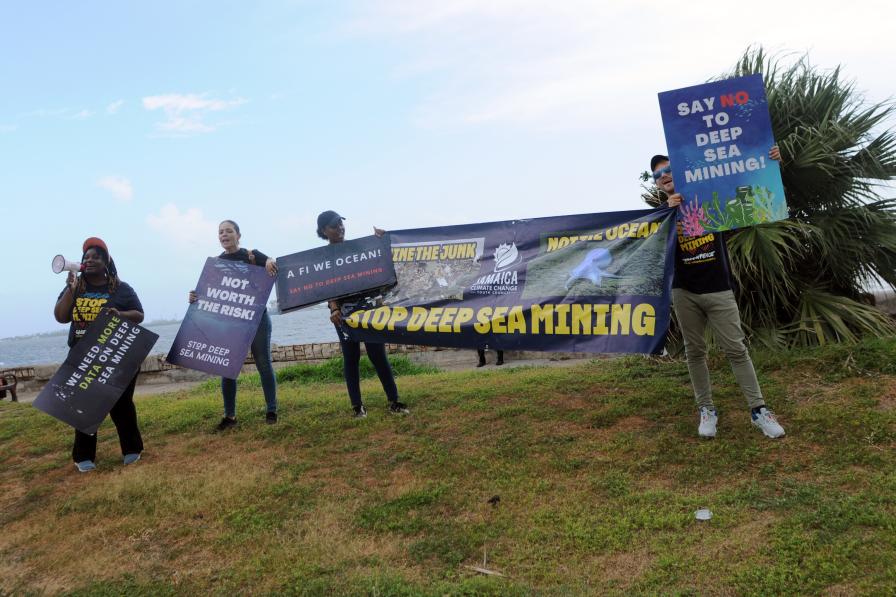The work of the Legal and Technical Commission (LTC) of the International Seabed Authority (ISA) took central stage on Thursday as Council members discussed the LTC report, focusing on modalities for the development of environmental thresholds, transparency and openness, information exchange between the LTC and contractors, and the process to strengthen contractors’ compliance.
In the morning, Council President Juan José Gonzalez Mijares (Mexico) guided delegates in an informal discussion on the President’s text. Regarding the environmental performance guarantee (regulation 26), and a regional group’s proposal to rename the provision to “decommissioning bond,” delegates expressed different views. On maintaining commercial production (regulation 28), some members queried the reference to market conditions and agreed to contractors notifying the Secretary-General and the sponsoring states about failures to comply or adhere to the plan of work. On safety, labor, and health standards (regulation 30), delegations discussed whether to refer to the Maritime Labour Convention or broadly to maritime labor conditions.
On a provision on reasonable regard for other activities and infrastructure in the marine environment (regulation 31), many delegates supported using the term “infrastructure” and requested references to Articles 87 (freedom of the high seas) and 147 (accommodation of activities in the Area and in the marine environment) of the UN Convention on the Law of the Sea (UNCLOS). Many supported reference to regional environmental management plans (REMPs), while some opposed, noting REMPs are not legally binding.
On risk of incidents (regulation 32) and preventing and responding to incidents (regulation 33), a few delegates stressed these regulations need to interact with the regulations on inspection, compliance, and enforcement, suggesting cross-references. Many supported a provision that the contractor shall provide an incident report, following an incident’s resolution. An observer stressed as unacceptable the provision noting that “a contractor shall reduce the risk of incidents as much as reasonably practicable, to the point where the cost of further risk reduction would be grossly disproportionate to the benefits of such reduction,” emphasizing the environment should be effectively protected without cost considerations.
On insurance obligations (regulation 36), some members noted that issuing compliance orders and consenting on the termination of an insurance policy should not be the responsibility of the Secretary-General but of the compliance committee and the Council, respectively. An observer stressed the need to specify the duration and scope of the insurance.
Council members also addressed:
- the reduction or suspension in production due to market conditions (regulation 29);
- notifiable events (regulation 34);
- human remains and objects and sites of an archaeological or historical nature (regulation 35), with delegates noting ongoing discussions under the informal intersessional group on underwater cultural heritage;
- the training plan (regulation 37);
- prevention of corruption (regulation 40);
- other resource categories (regulation 41);
- restrictions on advertisements, prospectuses, and other notices (regulation 42);
- compliance with other laws and regulations (regulation 43);
- notice and general procedures (regulation 93); and
- adoption of standards (regulation 94), with a delegation highlighting that the Council should consider and adopt standards, to be approved by the Assembly.
At lunchtime delegates engaged in informal discussions on the two-year rule, upon invitation by the Latin American and Caribbean Group, and on the updated roadmap for the development of the exploitation regulations, facilitated by Council President Mijares.
In the afternoon, the ISA Council plenary addressed cooperation with other organizations and the report on the work of the LTC.
Delegates approved the agreement for cooperation between the International Labour Organization and the ISA, and heard updates on ongoing synergies with the Convention on Biological Diversity (CBD).
On the LTC report, Council President Mijares reminded delegates that LTC Chair Ernesto Lara had presented the report on Thursday, 13 July. Delegates thanked the LTC members for their hard work and focused on, among other issues:
- the development of environmental thresholds for effective environmental protection, with some cautioning against limiting the number of experts to 10 for each of the three intersessional sub-groups;
- naming contractors in breach of their contractual obligations;
- work on the development of REMPs;
- whether the LTC could hold open meetings while discussing non-confidential matters, to increase transparency;
- dialogues between the LTC and contractors, aimed at improving contractors’ performance; and
- implementation of training programmes and the allocation of gender-balanced training opportunities.
LTC member Michelle Walker (Jamaica): noted that the legal issues on naming contractors were not discussed during the last LTC meeting due to lack of time, stressing that it was a substantive item on the LTC’s meeting agenda in March 2023; explained the work on the development of REMPs; underscored that the LTC is awaiting the Council’s directions to consider other standards and guidelines; and took note of the request for holding open meetings noting that, on environmental issues, the LTC “will make arrangements at the necessary stage for open meetings.”
Secretary-General Michael Lodge thanked the LTC for its hard work and commitment.
All ENB photos are free to use with attribution. For the 2nd Part of the 28th Annual Session of the ISA, please use: Photo by IISD/ENB | Diego Noguera
To receive free coverage of global environmental events delivered to your inbox, subscribe to the ENB Update newsletter.
